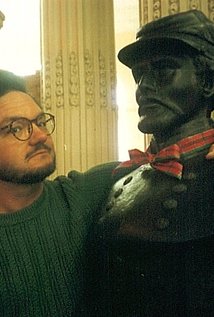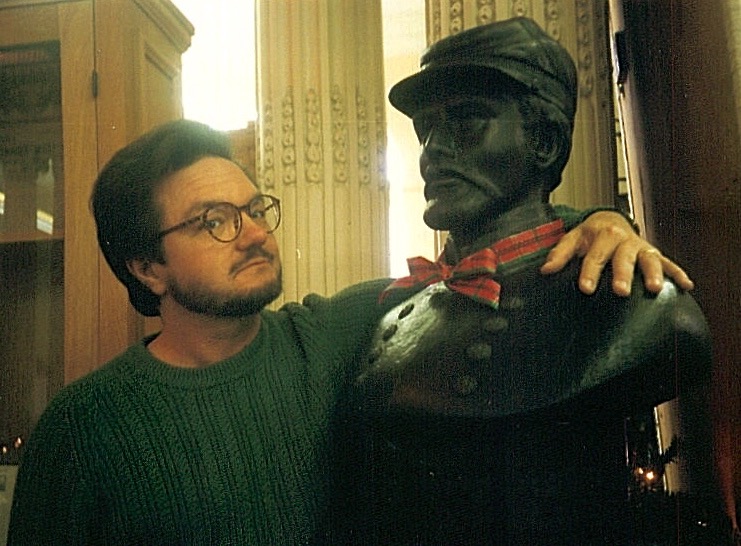Sometimes a letter is more than just a letter. No one believes that more than Rex McGee, screenwriter, journalist, and creativity coach. While a film student at the University of Southern California, Rex wrote what could have been dismissed as an ordinary fan letter to his idol, six-time Oscar winner Billy Wilder, about the director's newest f...
Show more »
Sometimes a letter is more than just a letter. No one believes that more than Rex McGee, screenwriter, journalist, and creativity coach. While a film student at the University of Southern California, Rex wrote what could have been dismissed as an ordinary fan letter to his idol, six-time Oscar winner Billy Wilder, about the director's newest film at the time, a romantic comedy called Avanti!Wilder was impressed with the letter, and invited 21-year-old Rex to meet him at his office. That first introduction ultimately led to a 29-year friendship like no other, with Rex assisting Wilder, famous for the classics Some Like It Hot and Sunset Boulevard, with newer films: The Front Page, starring Jack Lemmon and Walter Matthau, and then Fedora with William Holden and Henry Fonda.A native of North Texas, Rex was the son of a local movie projectionist who, ironically, hated movies. Prior to chasing his filmmaking dream at USC, he was raised in the Fort Worth area and graduated from Burleson High School (long before Kelly Clarkson). When he graduated with a bachelor of arts in Cinema, his skeptical father wondered whether he would ever get a 'real' job.But that meeting with Wilder Rex's junior year of college provided the inspiration and courage necessary to launch the Texas native on a career doing what he loved. Rex began writing movie scripts, while also working as a studio story analyst and writing for magazines such as Playboy and American Film. His screenplays were soon being optioned, but as is so often the case, they weren't getting produced.Though successful in a city that eats many alive, Rex finally hit the proverbial 'creative wall' in L.A. He had outlived both of his parents and endured the end of a long-term relationship when he lost his dear Aunt Alice, who considered him like a son. She bequeathed to him her 100-year-old home in Cleburne, and Rex took that as a sign that it was time to revisit his roots. He packed up and moved back to Texas.Shortly after returning home, Rex got a call from film producer Jerry Weintraub (protégé of Elvis Presley's manager, Col. Tom Parker), who needed a movie script to showcase country music star George Strait. Rex wrote a story of a successful but unhappy singer who walks away from the limelight to return to his Texas roots, looking for a more genuine existence. The film, Pure Country (1992), was really Rex's own story in disguise, and it turned out to have universal appeal. The movie was a hit not only for Strait, but also for Rex.Today, Rex's story of homecoming is now being developed into a stage musical with Tony-winning Broadway producer Michael Skipper (In the Heights). His movie about the aunt who left Rex her house, Where There's a Will (2006), starring Marion Ross, Frank Whaley and Keith Carradine, has become a beloved perennial on the Hallmark Channel. Whether as a writer in L.A. or Cleburne, Texas, Rex still battles the blank page every day, working on diverse film projects about the Soviet Union, cable TV news, and the Chicago Cubs. He has a thirteen-year-old daughter, Annie, who loves old movies.Rex is also passing along the hard-won professional lessons he has learned over the years. He teaches screenwriting at SMU and the KD College of Film and Dramatic Arts in Dallas, and he has conducted creativity workshops at SMU, TCU, Texas Instruments and Radio Shack called "The Artist's Way," which are based on the bestselling book by Julia Cameron that sharpened his own artistic approach. He helps his students revive the creative process, guiding them toward their dreams of becoming writers, painters, musicians - whatever they desire -- or simply adding more creativity to their jobs as engineers and mathematicians, journalists and human resource specialists.Just as in his own life, Rex enjoys seeing his students take the artistic reins. Being consistently creative is about removing fear and taking fresh risks, he says, and Rex knows first-hand that taking a risk -- whether a letter to a famous director or a move back home -- could be the chance of a lifetime.
Show less «




